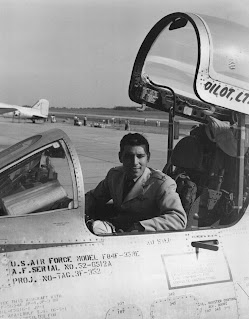If you've been enjoying this genealogy hobby for a while, you may have more tools, skills, and knowledge at your fingertips than you realize.
The other day my cousin asked me to track down his grandfather's uncle Pietro who died in World War I.
 |
| Was this the fallen soldier I was looking for? |
My cousin's grandfather confirmed that the record I found was the right soldier. Now I had the all-important name of his hometown in Italy (Riace) and Pietro's father's first name (Cosimo).
I felt as if my years of research, my knowledge of Italian, and my long list of genealogy website bookmarks had a greater purpose now. They had the power to help others.
It can be tough to research a family when you don't have first-hand knowledge of them. I'd tried before to build this family's tree, but I'd made a mistake and hit a dead-end. I needed my cousin's grandfather to tell me, "yes, that is my uncle".
What do professional genealogists do? How do they go on if they don't have a relative available to confirm important facts?
Here's what I could have done, and what you can do, too.
Work With What You Have
I could have started with that brief record of the fallen soldier. At first, I assumed he was not our man because I thought Pietro's father's name was Ilario, not Cosimo. But it's a good idea to work with the record you have. See if you can prove or disprove any of it.
Based on that record, I could have looked in the archives of the town of Riace for his birth. Ironically, the fallen-soldier record shows the wrong birthdate for him. But he is in the 1891 index of births. He was born on 9 January 1891.
Compare Your Findings to What You Do Know
Using his birth record, I could have looked for evidence that lined up with what I knew about this family. And his birth record does have what I needed.
Pietro's mother's maiden name was Niceforo. That's a fact I had all along. It was part of the scanty information I'd been told before. If Pietro's birth record showed a mother with any other last name, I would have no confidence that he was the right man.
But there she was. Anna Maria Niceforo was this soldier's mother. With both parents' names confirmed, I could search for all of their babies and see if they had any of the names I knew. And they did!
Build on Your Newly Found Facts
My new list of sibling names helped me find the ship manifest for my cousin's grandfather's mother, Teresa. I learned she'd been held in detention, kept briefly in the hospital because of "tremor of hands". She'd left behind her father Cosimo in Riace, and was to be released to her brother Domenico in Brooklyn.
That's the proof I needed. I had the birth record for her brother Domenico. Later I found Pietro's military record card on Ancestry.com. It said that Domenico in Brooklyn was the person informed of the soldier Pietro's death on 5 October 1918.
Don't Rule Out Less-than-Perfect Search Results
 |
| His date of death also tells us which battle he died in. |
You might overlook a search result because it isn't a perfect match to your family member. I was ready to toss aside that soldier's record because I didn't recognize his town name or his father's name. But he was the right man.
And Teresa's ship manifest was a bear to find. Ancestry's search only brought me to the page listing detainees. That didn't tell me her age, hometown, or her father's name. I had to comb through the 901-image collection to find the rest of her information.
I had to have her main ship manifest entry to know that I had the right person. And it was worth the trouble.
Now go out there and use your family research super powers for good!
Here are some related articles:












